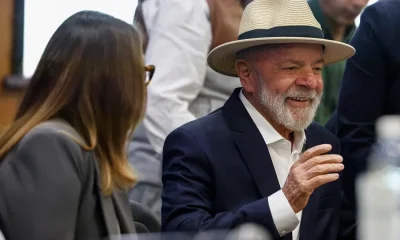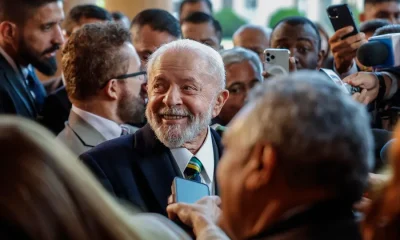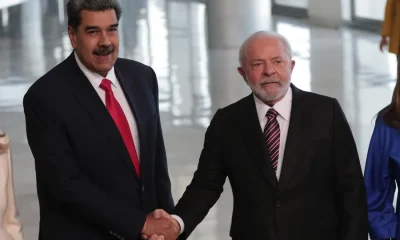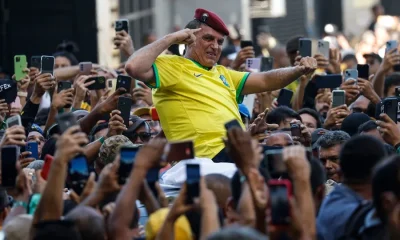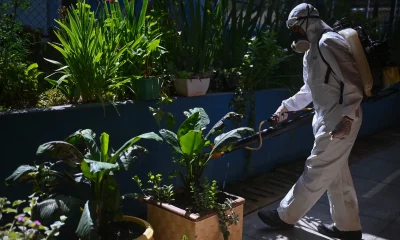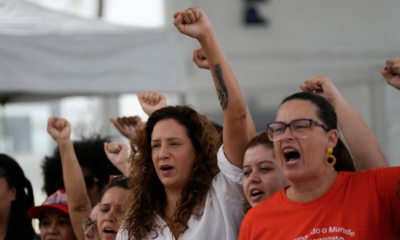International
‘Brazil is back,’ Lula hails at Latin America leaders summit
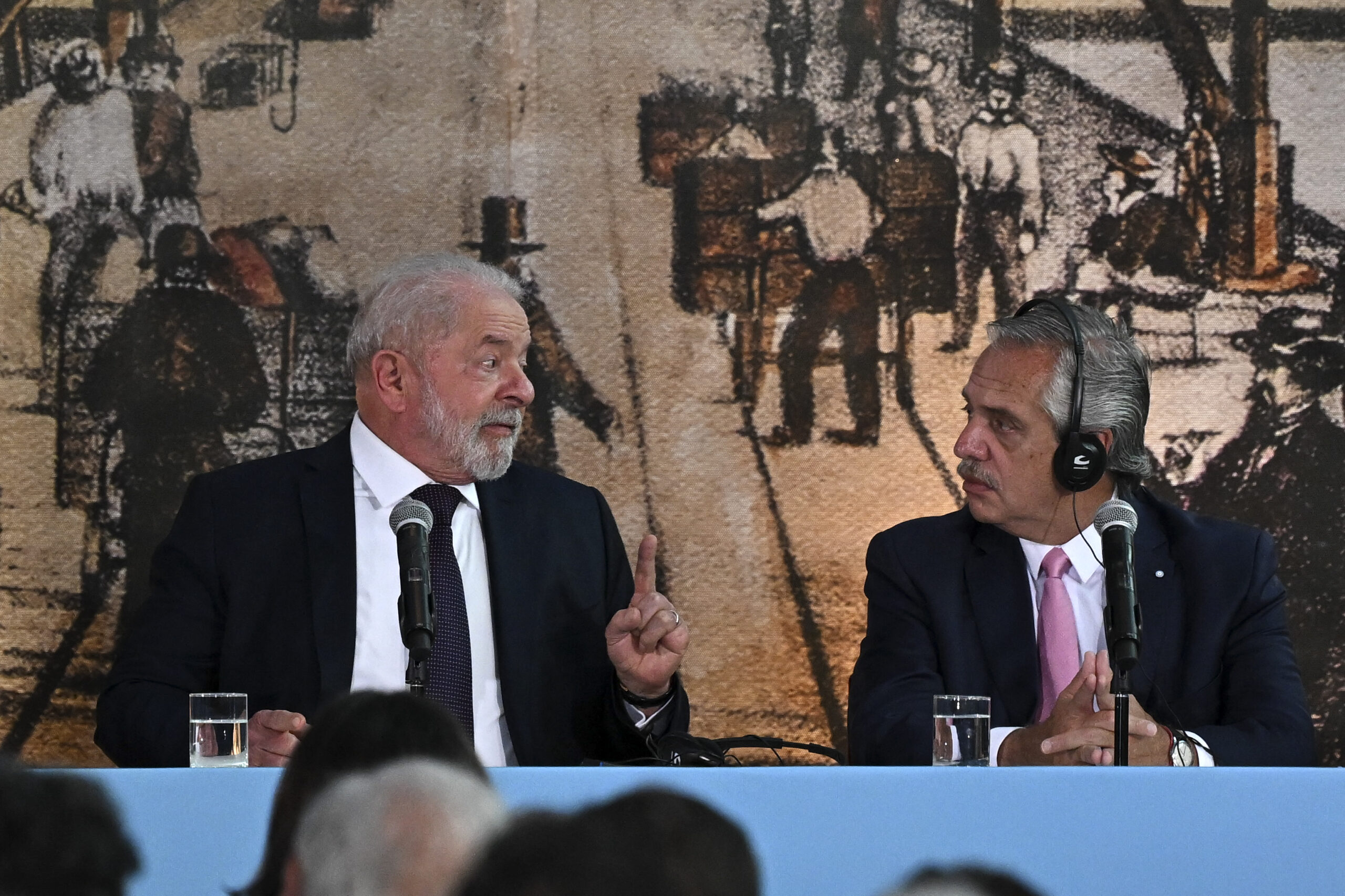
January 25 | By AFP | Philippe Bernes-Lasserre / Mauricio Rabuffetti |
Brazilian President Luiz Inacio Lula da Silva declared Tuesday that his country is “back in the region” after joining more than a dozen other Latin American leaders at a summit in Buenos Aires.
Less than a month after his inauguration, Lula arrived in the Argentine capital looking to rebuild bridges after his far-right predecessor Jair Bolsonaro had pulled out of the grouping.
“Brazil is back in the region and ready to work side-by-side with you with a very strong feeling of solidarity and closeness,” said the 77-year-old leader during the seventh Community of Latin American and Caribbean States (CELAC) summit, which brings together 33 nations.
Lula, who previously served as Brazil’s president from 2003-10, was one of the founders of CELAC during the first “pink wave” of leftward political shifts on the continent over a decade ago.
But Bolsonaro pulled Brazil out of the group over what he perceived as its support for undemocratic governments in Nicaragua, Venezuela and Cuba.
Lula spoke Tuesday about the “multiple crises” affecting the world — from the pandemic to climate change, geopolitical tensions, food insecurities and threats to democracy.
“All this happens in the midst of an unacceptable rise in inequality, poverty and hunger,” said Lula, the only leader to publicize his speech at the summit.
Democracy and its threats — especially from the far right — were a central theme of the summit.
“We cannot allow the recalcitrant and fascist far right to put our institutions and our people in peril,” said the host of the forum, Argentina’s center-left President Alberto Fernandez, in opening remarks.
He pointed to the riots by Bolsonaro supporters at the seats of power in Brasilia earlier this month and the alleged attempt to assassinate his vice president, Cristina Kirchner, in September.
But Fernandez made no mention of communist Cuba or the accusations of political oppression made against radical leftist regimes in Venezuela, Nicaragua and Bolivia.
In fact, with Cuban President Miguel Diaz-Canel in attendance, Fernandez called for an end to the US-led blockade of Cuba and Venezuela.
They are “a perverse method of punishment, not of the governments but of the people,” Fernandez said.
‘Latin America is bankrupt’
Host Argentina this week hailed a “new climate in Latin America,” with the region ushering in a fresh wave of left or center-left governments since 2018 — including Mexico, Argentina, Honduras, Chile, Colombia and Brazil.
A forum for consultation and cooperation, CELAC has no power to enforce any agreements between its members.
And while Fernandez stressed the need to “strengthen the institutions in our region,” CELAC is struggling to unite members over successive regional crises, such as in Peru.
“Latin America is bankrupt from the institutional point of view,” Ignacio Bartesaghi, an international relations expert at the Catholic University of Uruguay, told AFP.
“There is not even certain basic consensus in Latin America, as on the difference between a democracy and a dictatorship,” he stressed.
“There are (at CELAC) presidents who do not even recognize each other,” he noted, alluding to situations such as Paraguay’s Mario Abdo Benitez, whose country broke diplomatic relations with Nicolas Maduro’s Venezuela in 2019.
‘Absence of dialogue’
Maduro called off his own trip to the gathering at the last minute, citing “a risk of aggression” from “the neo-fascist right,” a possible reference to some Argentine opposition politicians calling for him to be arrested on arrival.
He was due on Monday to meet with Lula, who instead held talks with Diaz-Canel.
He sent a message to the forum blasting the “criminal sanctions” against his government, in particular against the state oil company PDVSA.
Other significant absentees in Buenos Aires include Mexico’s left-wing President Andres Manuel Lopez Obrador, leader of the second largest economy in Latin America and host in 2021 of the last CELAC summit.
CELAC however remains the partner of choice for China and the European Union to negotiate when cooperating with the region.
But the last joint-EU summit was in 2015, highlighting the lack of regional consensus, says Bernabe Malacalza, researcher at the CONICET Argentine national research center.
In this sense, the return of Lula could give a boost to certain sub-regional issues, such as the free-trade agreement between the EU and the Mercosur group which comprises Brazil, Argentina, Uruguay and Paraguay.
The deal was finalized in 2019 but never ratified, due in particular to concerns about Bolsonaro’s environmental policy.
Lula has indicated a willingness to resume contacts.
Meanwhile, Uruguayan president Luis Lacalle Pou proposed a free-trade zone extending from “Mexico to the south of South America.”
International
Nine People Killed in Two Armed Attacks in Manabí, Ecuador
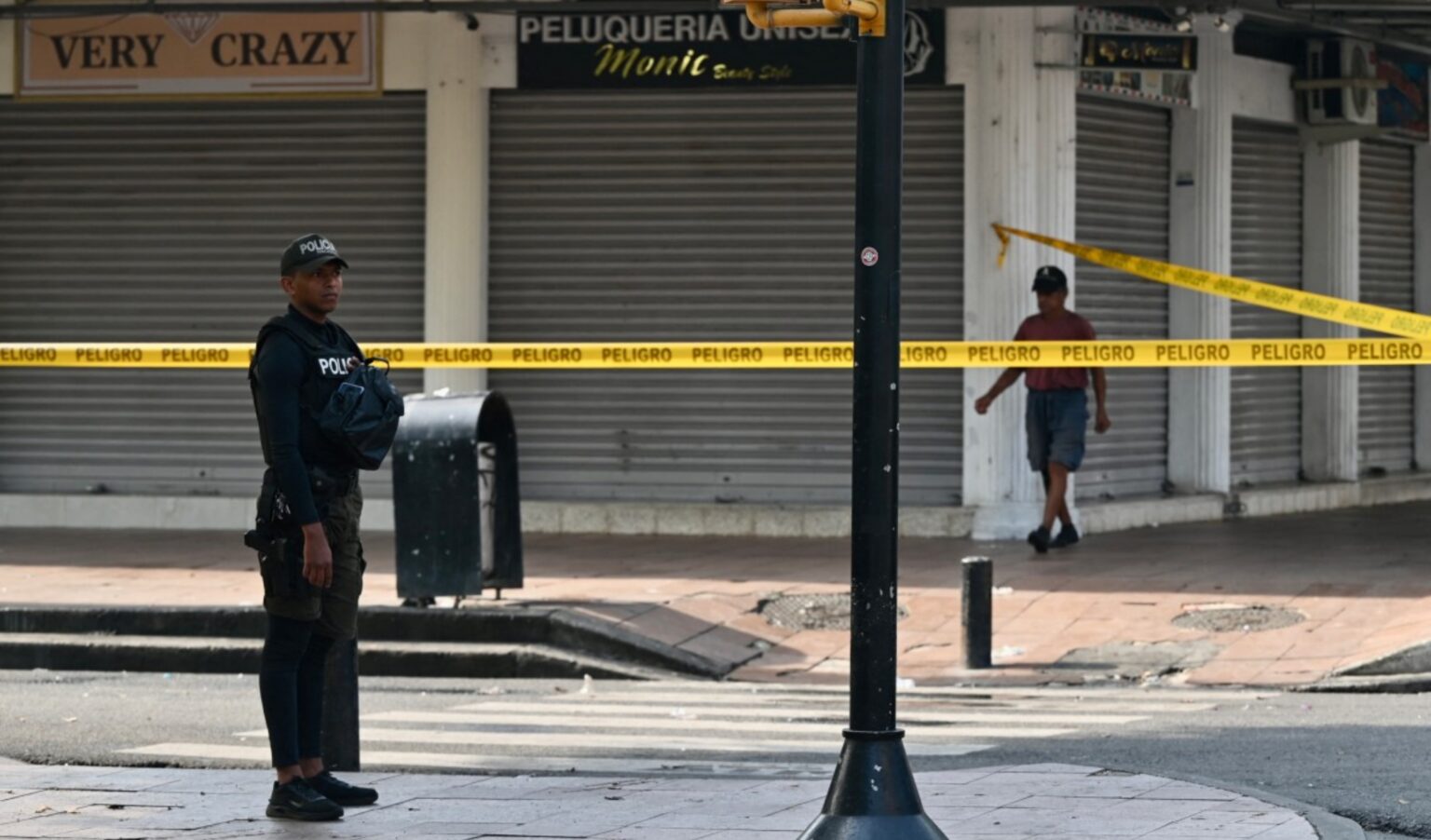
At least nine people were killed Monday in two nearly simultaneous armed attacks in the province of Manabí, located on Ecuador’s Pacific coast, one of the areas hardest hit by violence in the country, according to the National Police.
The first attack left seven people dead and took place in Camarones, a rural area of the Jama canton. The second occurred in the sector known as La Y, in the seaside town of Canoa, part of the San Vicente canton, where two people were killed.
According to preliminary reports, both incidents occurred early Monday morning when armed men intercepted the victims. Authorities said the motives behind the attacks remain under investigation.
The assault in Camarones happened around 1:15 a.m. local time, when a group of armed individuals stormed a ranch in the area. The victims have not yet been officially identified.
About 15 minutes later, in Canoa, two men traveling in a motorized taxi were intercepted by armed suspects riding motorcycles and shot. One of the victims was identified as a 28-year-old passenger, while the identity of the driver has not yet been confirmed.
The attacks occurred just days after another multiple homicide on February 12 at a ranch in San Juan de las Cucarachas, a rural area of the Santa Ana canton in Manabí, which left six people dead.
Manabí has been experiencing escalating insecurity linked to disputes among organized crime groups, including drug trafficking networks and territorial control conflicts. In response, the government has maintained a state of emergency in the province since August to address the surge in violence attributed to these criminal organizations.
International
Over 40 Million Affected by Major Snowstorm in Northeastern U.S.
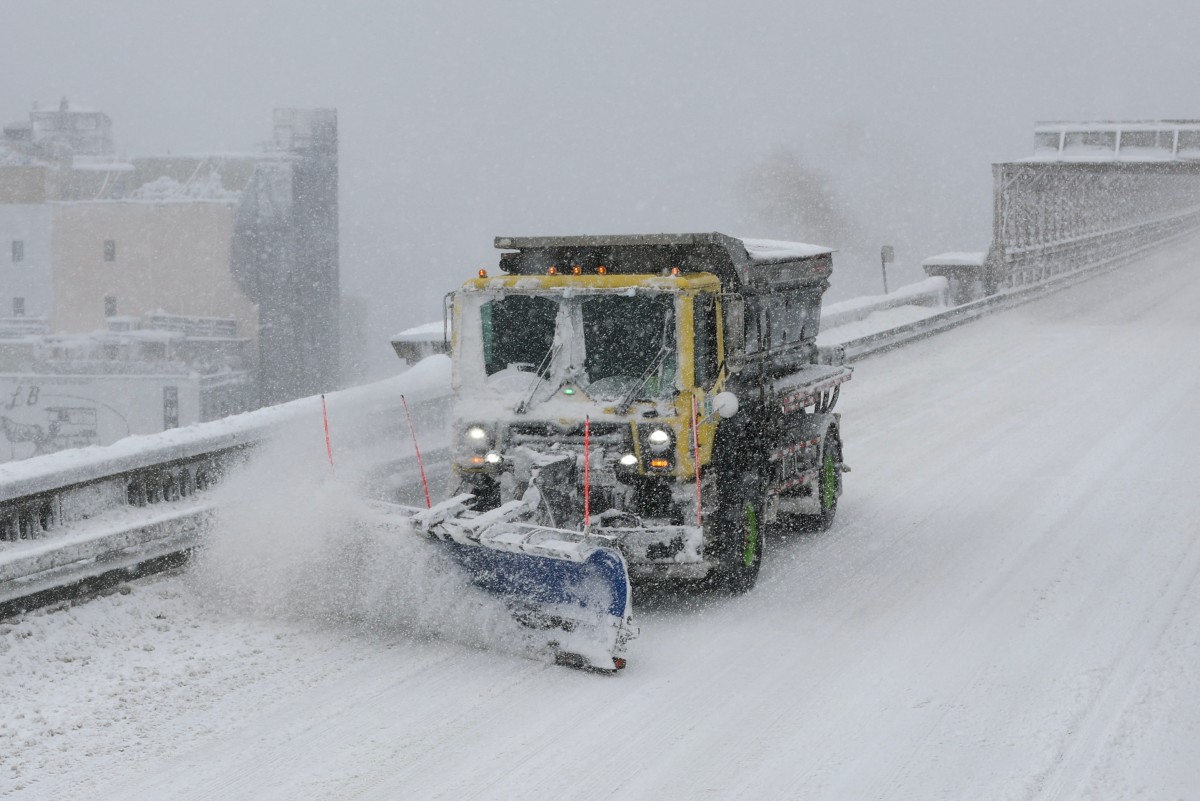
More than 40 million people across the northeastern United States are facing a new major snowstorm this Monday, including residents of New York City, where local authorities have shut down roads to traffic.
The storm triggered widespread flight cancellations early in the morning and caused power outages affecting thousands of homes and businesses throughout the region.
New York City Mayor Zohran Mamdani banned non-essential vehicle travel at least until noon and ordered the closure of public schools as a precautionary measure. Authorities in neighboring states, including New Jersey and Rhode Island, imposed similar restrictions to ensure public safety.
This marks the second major winter storm to hit the East Coast in less than a month, leading to growing frustration among residents.
“I’m fed up. I don’t want to see another snowflake,” said Vincent Greer, a resident of Wildwood, New Jersey, as he shoveled accumulated snow from in front of his building.
Officials continue to urge residents to remain indoors, avoid unnecessary travel, and monitor local advisories as crews work to clear roads and restore power.
International
Ninth Victim Recovered After Deadliest U.S. Avalanche in Decades
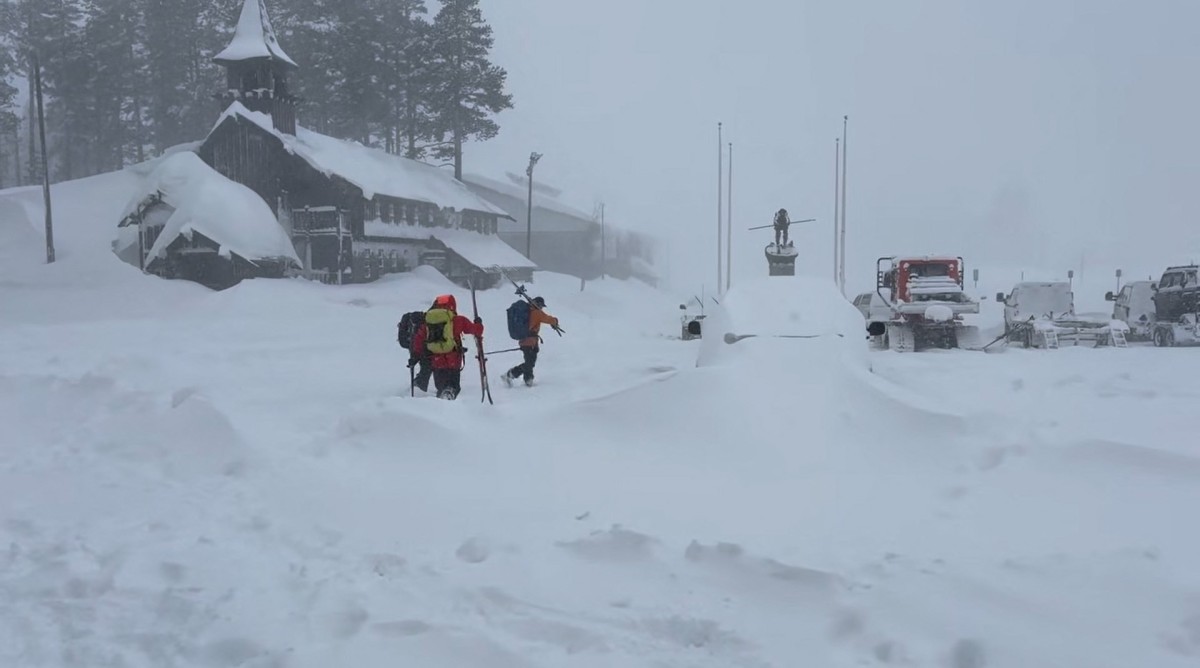
Rescue teams in California on Saturday recovered the body of the ninth and final victim of a deadly avalanche in the Sierra Nevada mountains, according to the local sheriff’s office.
The avalanche struck a group of 11 skiers and four guides on Tuesday as they were returning from a three-day backcountry trip near Castle Peak, a 2,777-meter (9,111-foot) mountain and popular tourist destination on the U.S. West Coast.
Six people were rescued alive on Tuesday. Authorities said the incident marks the deadliest avalanche in the United States since 1981.
“All nine individuals who lost their lives in the February 17 Castle Peak avalanche have been safely recovered from the mountain,” the Nevada County Sheriff’s Office said in a statement.
“There are no words that can truly capture the magnitude of this loss, and our hearts grieve alongside the families affected by this catastrophic event,” Sheriff Shannan Moon said.
Officials had warned on Thursday that search operations would likely continue through the weekend due to severe weather conditions in the area.
Survivors were able to call for help shortly after the avalanche occurred. However, near-zero visibility and the risk of additional snow slides prevented rescue teams from reaching them for several hours.
-
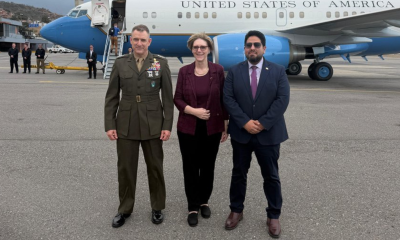
 International5 days ago
International5 days agoTop U.S. Military Commander Meets Interim Venezuelan Leaders After Maduro’s Capture
-
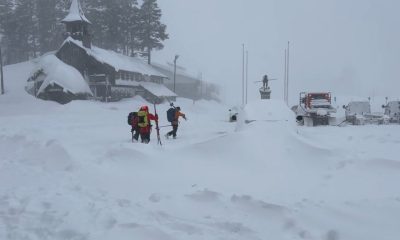
 International2 days ago
International2 days agoNinth Victim Recovered After Deadliest U.S. Avalanche in Decades
-

 International3 days ago
International3 days agoTrump Defies Supreme Court With New 10% Global Tariff
-

 International4 days ago
International4 days agoThree Injured in Mail Package Explosion at Buenos Aires Gendarmerie Academy
-

 International4 days ago
International4 days agoU.S. Targets Members of Outgoing Boric Administration With Visa Revocations
-
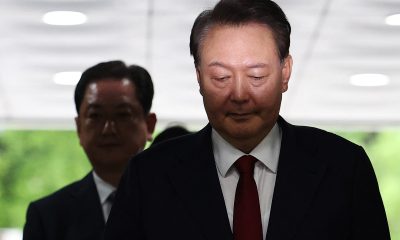
 Sin categoría5 days ago
Sin categoría5 days agoFormer South Korean President Yoon Suk-yeol Sentenced to Life for Insurrection
-

 International15 hours ago
International15 hours agoOver 40 Million Affected by Major Snowstorm in Northeastern U.S.
-

 International15 hours ago
International15 hours agoNine People Killed in Two Armed Attacks in Manabí, Ecuador





























